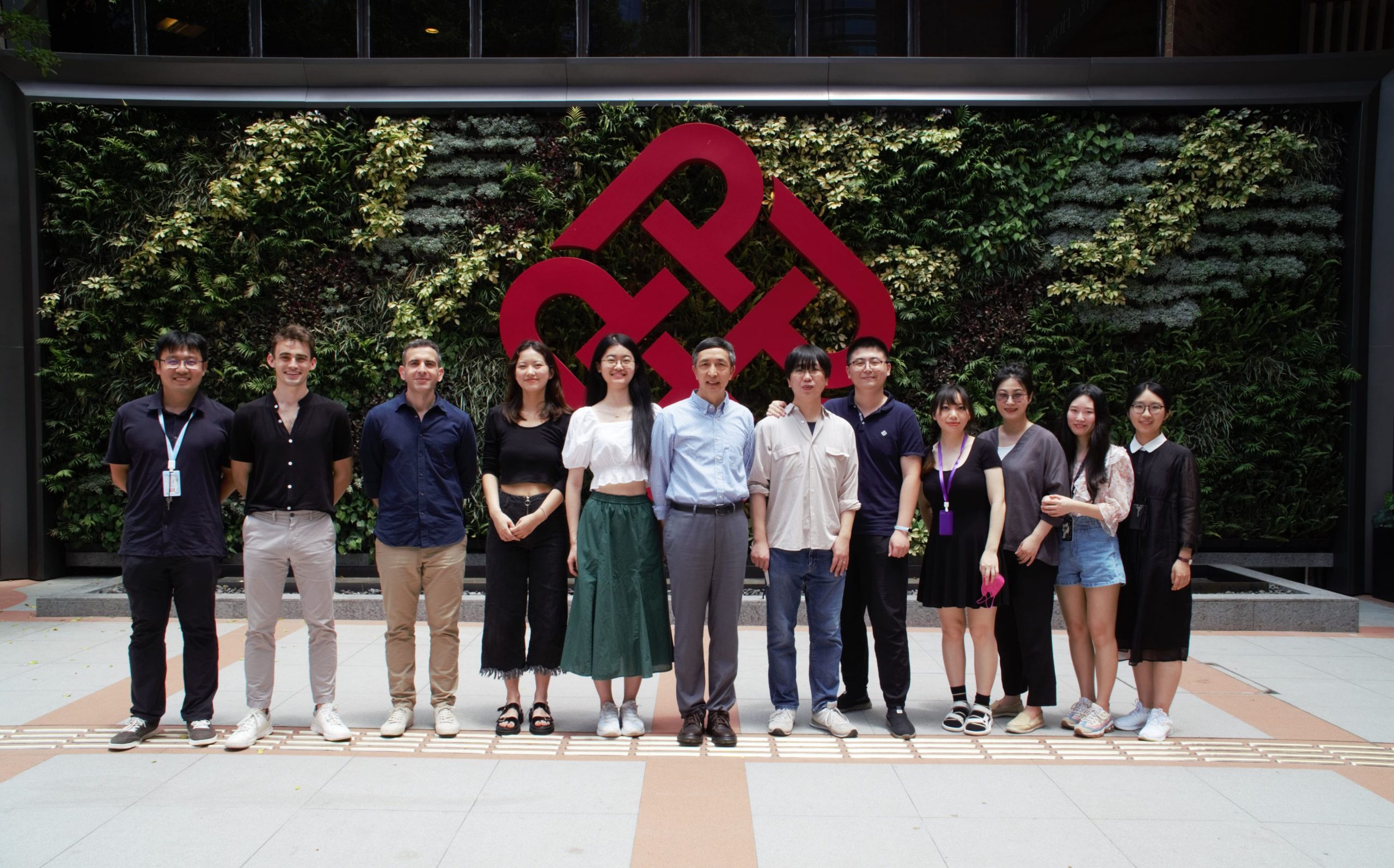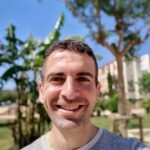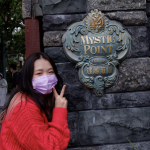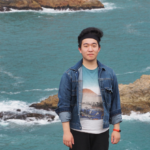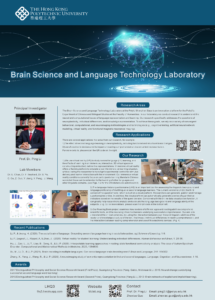Current Lab Members
Ping Li graduated from Peking University with BA and MA degrees in Chinese linguistics, and obtained his PhD in psycholinguistics from Leiden University (with graduate training at the Max Planck Institute for Psycholinguistics). He conducted postdoctoral research in language science and cognitive neuroscience at the University of California, San Diego. Prior to joining PolyU he was Professor of Psychology, Linguistics, and Information Sciences and Technology at the Pennsylvania State University. He previously taught at the Chinese University of Hong Kong and the University of Richmond. He is currently Editor-in-Chief of Brain and Language, Senior Editor of Cognitive Science, and Associate Editor of Frontiers in Psychology. He served as Editor of Bilingualism: Language and Cognition and the Journal of Neurolinguistics, as well as President of the Society for Computation in Psychology, and Program Director of Perception, Action and Cognition and Cognitive Neuroscience at the U.S. National Science Foundation. Li’s research is focused on investigating the neurocognitive and computational bases of language acquisition, bilingualism, and reading comprehension in both children and adults. He uses digital technologies and cognitive neuroscience methods to study neuroplasticity and individual differences in learning and to understand the relationships among languages, cultures, and the brain. Li is a Fellow of the American Association for the Advancement of Science, the Psychonomic Society, and the Hong Kong Academy of the Humanities.
E-Mail: ping2.li@polyu.edu.hk
Research Assistant Professor
- Lexical-semantic representation and processing
- Bi-/multilingualism
- Computational approaches to the study of language
- Language and thought
Rice University; Ph.D. in Cognitive Neuroscience
University of Hong Kong; Bachelor of Science in Statistics, Minor: Psychology, Finance
Research Interests:
My core area of research is in understanding cognitive and neural representations underlying our ability to process words and concepts, with a particular emphasis on understanding the different levels of representation involved, how they interact, and how the representational structure changes with experience and in different contexts. My approach to these questions largely relies on connecting behavioural and brain measures of similarity between stimuli and the similarity structure generated from well-established computational theories of how information is coded at different levels of representations.
E-Mail: mingjun.zhai@polyu.edu.hk
Postdoctoral Fellows

Nagoya University; Ph.D. in Psycholinguistics and Neurolinguistics, 2021
Research Interests:
- Embodied cognition theory and virtual reality.
- Bayesian statistical modeling and advanced research technologies.
- Crosslinguistic research on the processing of word order, animacy, and case marking in Japanese, Chinese, Korean, and Tongan.
- Sino-Xenic vocabularies in Japanese, Korean, and Vietnamese.
E-Mail: shaoyun.yu@polyu.edu.hk / s.yu@pm.me
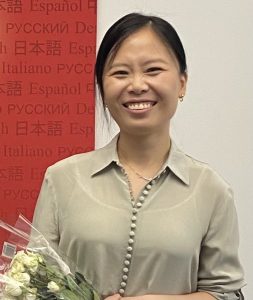
Carnegie Mellon University, Pittsburgh, Pennsylvania, USA; Ph.D. in Second Language Acquisition
Research Interests:
I focus on two themes in second language acquisition (SLA) using both experimental and corpus-based approaches. First, I explore the cognitive mechanisms behind SLA. I study how learners process and produce a second language (L2), what challenges they face, and what strategies they develop during the learning. Rooted in the first theme, the second theme aims to develop novel pedagogical methods and tools to improve L2 learning of various linguistic skills. I am especially interested in digital language learning. To be specific, I am developing virtual reality (VR) games, websites and APPs for Chinese learning, examining their short- and long-term effectiveness and exploring their impact on learners’ cognition.
E-Mail: zhe.gao@polyu.edu.hk
Project Associate
Responsible for Projects:
E-Mail: zhexiao.guo@polyu.edu.hk
The Hong Kong Polytechnic University; MSc in Multimedia Entertainment Technology, 2021
E-Mail: yuejiang@polyu.edu.hk
Ph.D. Students
Institute of Psychology of the Chinese Academy of Sciences; MSc in psychology, 2020
Research Interests:
- Second Language Acquisition
- Neuro-Cognitive Mechanisms
- Individual Differences
- Developmental Patterns of Language Acquisition
E-Mail: chan-yuan.gu@connect.polyu.hk
University of Edinburgh; MSc in Developmental Linguistics, 2018
Research Interests:
- Second Language Acquisition
- L1 Attrition, Psycholinguistics
- Neurolinguistics
- Consequences of Bilingualism for Language Processing
- Cognition and the Brain
University of Groningen; M.A. Linguistics – Multilingualism, 2020
E-Mail: j.jingwangjing@gmail.com
 Kexin Huang
Kexin Huang
University of Edinburgh; BSc in Artificial Intelligence and Computer Science
Imperial College London; MSc in Biomedical Engineering (Neuro-Technology)
E-Mail: erishuan@gmail.com
Visiting Ph.D. Students
 Hangyan Yu
Hangyan Yu
Zhejiang University; M.A. in Applied Linguistics, 2020
E-mail: hangyan.yu@polyu.edu.hk
Chunlin Liu
Tohoku University; MA. in International Cultural Studies, 2021
E-mail: liuchunlin0811@gmail.com
Research Associate
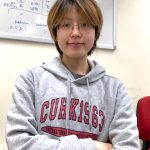
The Chinese University of Hong Kong; MA in Psychology 2021
The Chinese University of Hong Kong; MA in Linguistics 2019
E-Mail: ye_xinyi@yahoo.com
Research Assistants
Nanjing University; B.A.,Teaching Chinese to Speakers of Other Languages
National University of Singapore & Peking University; M.A.Chinese linguistics
E-Mail: minghwu@polyu.edu.hk
Xiamen University; BA in Chinese Language and Literature
City University of Hong Kong; MA in Corpus and Empirical Linguistics
E-Mail: yuhan-mia.huang@polyu.edu.hk
The University of Edinburgh; Msc in Phonetics
Minzu University of China, BA in Chinese Language and Literature
E-mail: zixuan.jia@polyu.edu.hk
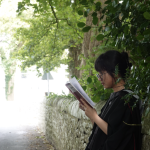 Yue Hu
Yue Hu
Lancaster University, MA in Language and Linguistics
Beijing International Studies University (BISU), BA in Albanian
E-mail: yue7.hu@polyu.edu.hk
Undergraduate in B.A. of Chinse and Bilingual Study and English for the Professions
E-Mail: yuxi135.li@connect.polyu.hk
For a list of Lab Alumni, please click here
Lab Facilities
Equipment:
Our lab has VR equipment for the study of language learning in immersive virtual environments, including the HTC Vive, Google DayDream, EinScan Pro 2X, EMOTIV EPOC X 14, KAT Walk C, Manus Prime II Gloves, Insta360 Pro2, Microsoft HoloLens 2, MAD GAZE – VADER, and Oculus Quest.
For high-load simulations and analysis, we also use the University’s UBDA High-Performance Computing cluster. For MRI studies we use the facilities at the UBSN. Ample testing space is available in our lab for various cognitive and psycholinguistic experiments.
Brain Science and Language Technology Lab in Shenzhen
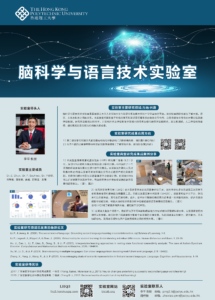 The Brian Science and Language Technology Laboratory at the PolyU Shenzhen Base is an innovation platform for the PolyU’s Department of Chinese and Bilingual Studies at the Faculty of Humanities. We conduct research to understand the neural and computational bases of language representation and learning. Our research specifically addresses the questions of neuroplasticity, individual differences, and knowledge representation. To achieve these goals, we rely on a variety of convergent behavioral, computational, and neuroimaging methodologies and technologies (e.g., cognitive testing, artificial neural network modeling, VR, and functional magnetic resonance imaging).
The Brian Science and Language Technology Laboratory at the PolyU Shenzhen Base is an innovation platform for the PolyU’s Department of Chinese and Bilingual Studies at the Faculty of Humanities. We conduct research to understand the neural and computational bases of language representation and learning. Our research specifically addresses the questions of neuroplasticity, individual differences, and knowledge representation. To achieve these goals, we rely on a variety of convergent behavioral, computational, and neuroimaging methodologies and technologies (e.g., cognitive testing, artificial neural network modeling, VR, and functional magnetic resonance imaging).
See an example of our community outreach at the summer camp of intelligent medicine








